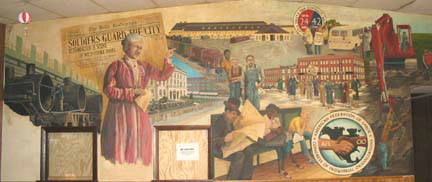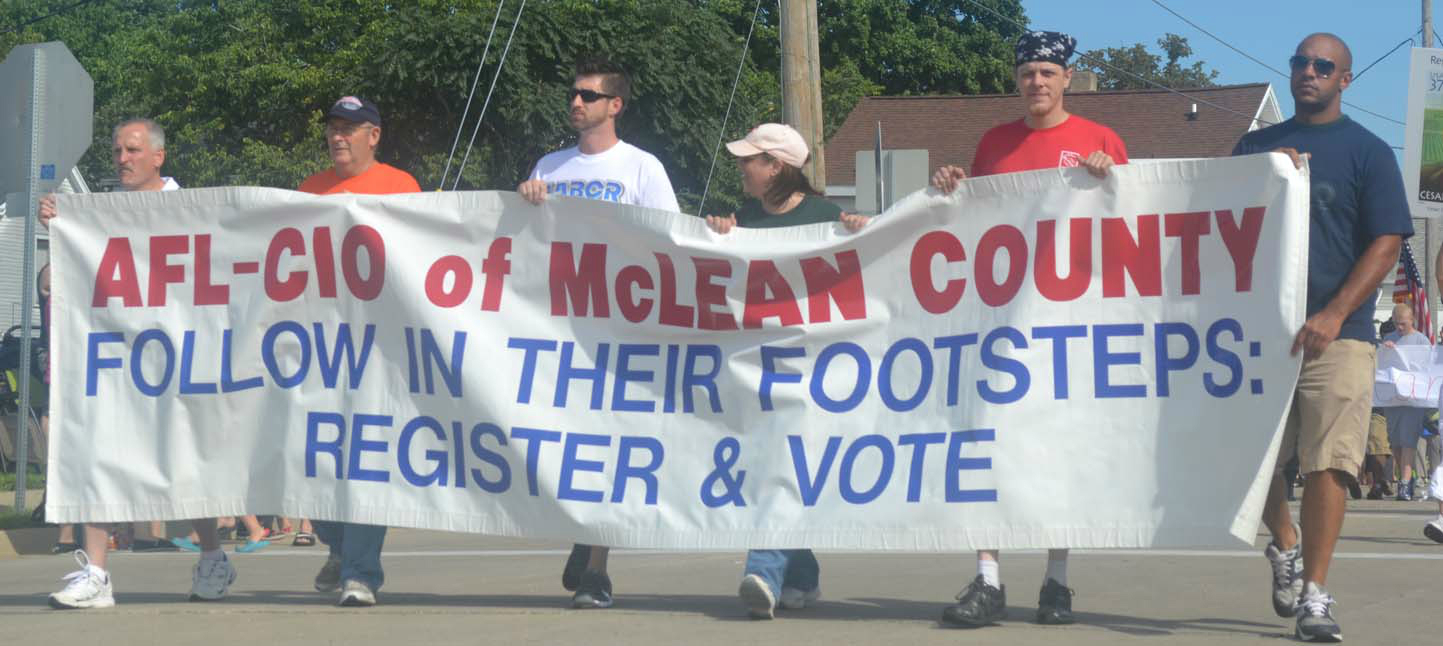This page contains reviews of labor-related books, films and music.
| West Virginia miners bloody battles recalled |
|
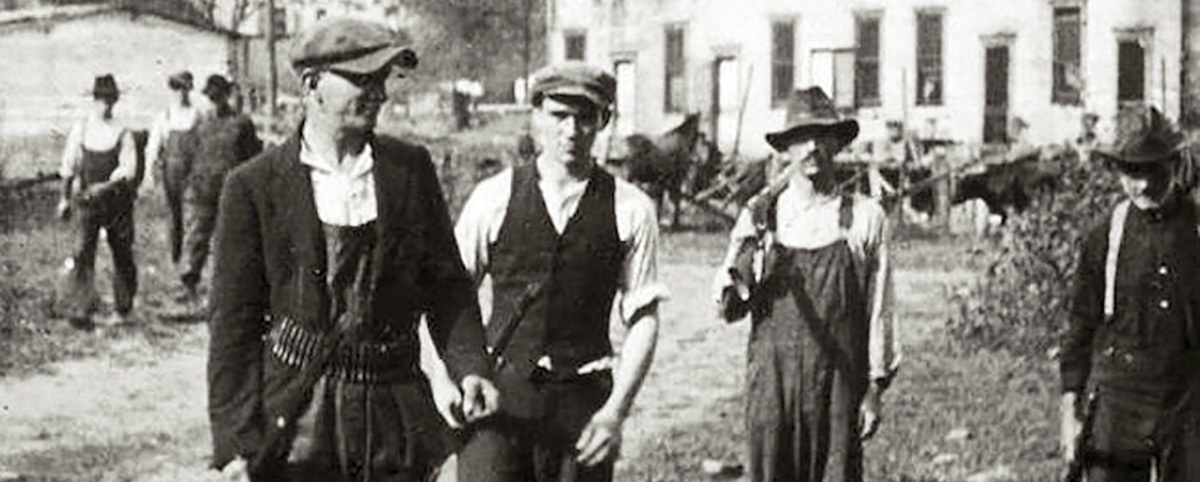 “The difference working in a nonunion mine and a union mine was like jumping out of the fire into a cool stream of water,” recalled Matewan, West Virginia miner Kelly Buchanan in 1972.
Buchanan’s stark life tale of organizing, coal mining and fierce confrontations highlights the real life experience of miners who survived the fierce West Virginia coal wars of 1920-21.
“The difference working in a nonunion mine and a union mine was like jumping out of the fire into a cool stream of water,” recalled Matewan, West Virginia miner Kelly Buchanan in 1972.
Buchanan’s stark life tale of organizing, coal mining and fierce confrontations highlights the real life experience of miners who survived the fierce West Virginia coal wars of 1920-21.
|
| Dr. Adolf Reed Jr. -- Living through Jim Crow reflections |
|
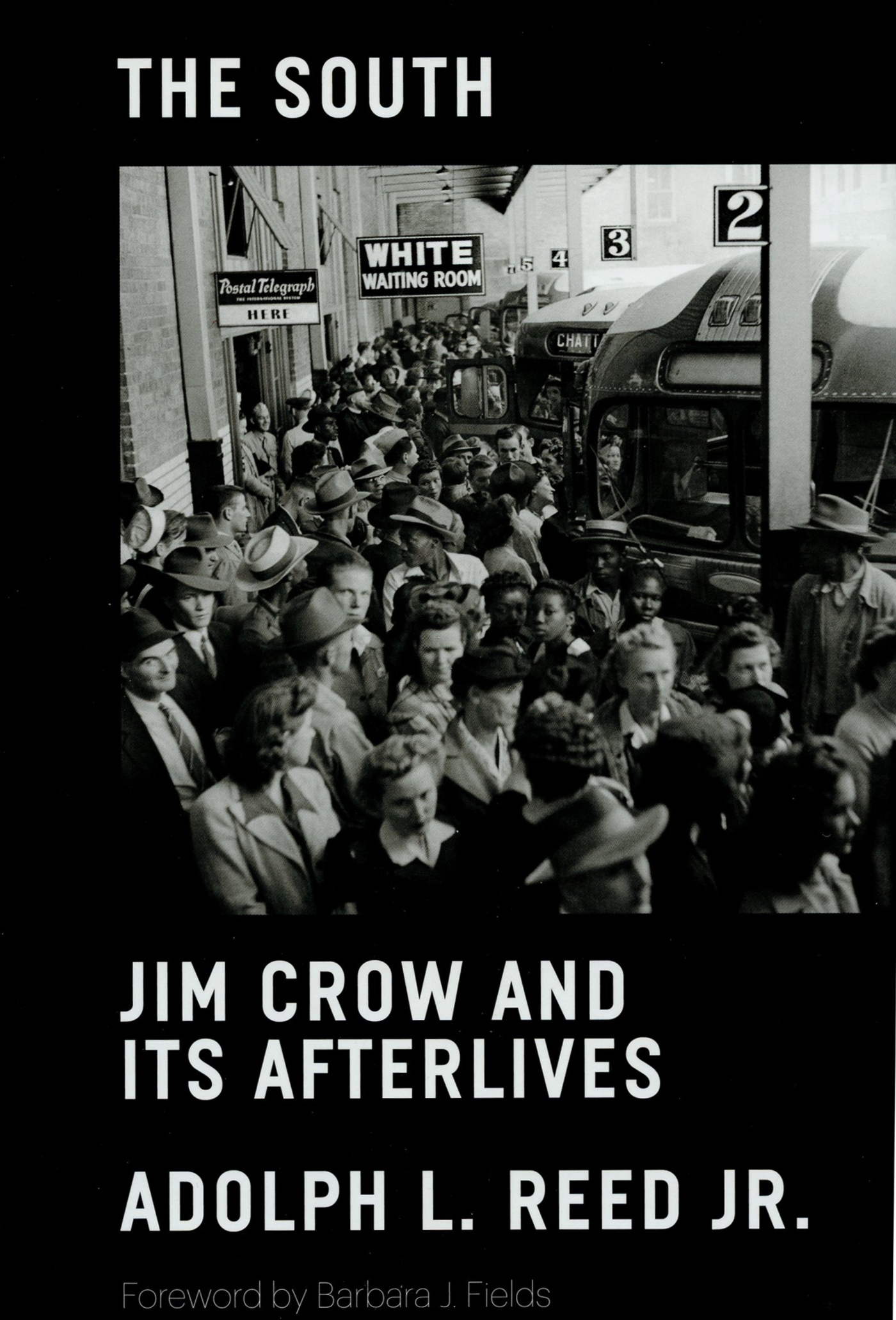 U.S. Southern racial segregation is represented in stark images: separate drinking fountains, waiting rooms clearly marked, all portraying a clear, racial dividing line.
Yet each state, town, county had its own variations – a Black individual crossing a county line entered unknown territory.
U.S. Southern racial segregation is represented in stark images: separate drinking fountains, waiting rooms clearly marked, all portraying a clear, racial dividing line.
Yet each state, town, county had its own variations – a Black individual crossing a county line entered unknown territory.
|
| Foundational to American development - enslaved workers |
|
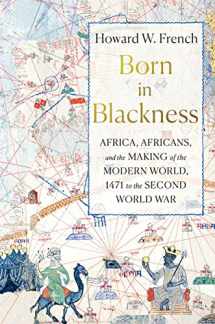 Born in Blackness: Africa, Africans and the Making of the Modern World, 1471 to the Second World War
By Howard W. French
W.W. Norton, New York, 2021
Enslaved peoples’ labor built the U.S. and European economy, but what did it do to Africa.
Born in Blackness: Africa, Africans and the Making of the Modern World, 1471 to the Second World War
By Howard W. French
W.W. Norton, New York, 2021
Enslaved peoples’ labor built the U.S. and European economy, but what did it do to Africa.
|
| How could a working person vote for Donald Trump? |
|
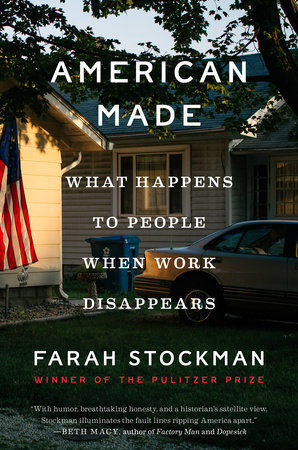 How could a worker vote for Donald Trump? – head to the factory floor for the answer
American Made: What Happens to People When Work Disappears
By Farah Stockman, 2021
Random-House, New York
“How could a worker vote for Donald Trump?” was a common refrain these past five years.
How could a worker vote for Donald Trump? – head to the factory floor for the answer
American Made: What Happens to People When Work Disappears
By Farah Stockman, 2021
Random-House, New York
“How could a worker vote for Donald Trump?” was a common refrain these past five years.
|
| Peoria featured in challenging new book |
|
 America on Fire: The Untold History of Police Violence and Black Rebellion since the 1960s
By Elizabeth Hinton
W.W. Norton Publisher
On Monday night and in the early morning of Tuesday, July 30, Peoria Police and residents of the south side Taft Homes fought a running battle, with bottles, rocks and even a shotgun aimed at police, injuring rookie officer Al Misener.
America on Fire: The Untold History of Police Violence and Black Rebellion since the 1960s
By Elizabeth Hinton
W.W. Norton Publisher
On Monday night and in the early morning of Tuesday, July 30, Peoria Police and residents of the south side Taft Homes fought a running battle, with bottles, rocks and even a shotgun aimed at police, injuring rookie officer Al Misener.
|
| St Louis - "Gateway to the West" or door to exploitation? |
|
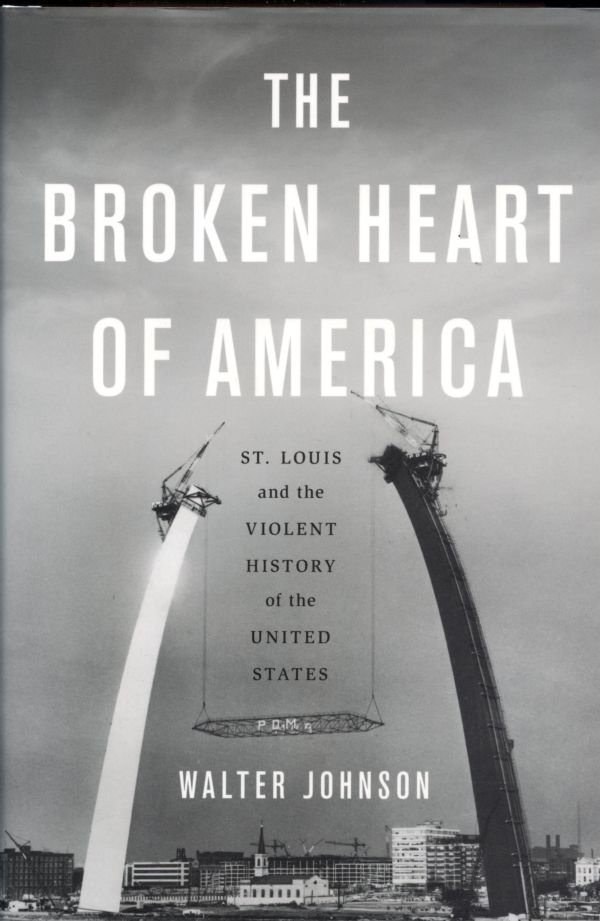 It’s a long and tortured path from the April 18, 1836 burning alive of free African-American Francis McIntosh in downtown St. Louis to 2014’s police shooting of Michael Brown in Ferguson.
In The Broken Heart Harvard’s Walter Johnson claims that St.
It’s a long and tortured path from the April 18, 1836 burning alive of free African-American Francis McIntosh in downtown St. Louis to 2014’s police shooting of Michael Brown in Ferguson.
In The Broken Heart Harvard’s Walter Johnson claims that St.
|
| Analyzing labor uprisings: When Workers Shot Back |
|
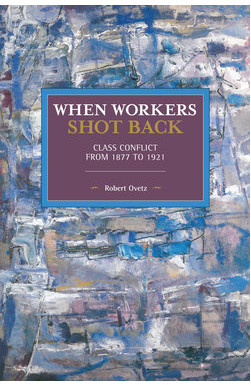 When are those opportune moments when workers project power, causing national repercussions and frightening political and corporate structures?
Analyzing those moments, finding the critical mass of not only anger, but opportunity, is the focus of Robert Ovetz’s When Workers Shot Back.
When are those opportune moments when workers project power, causing national repercussions and frightening political and corporate structures?
Analyzing those moments, finding the critical mass of not only anger, but opportunity, is the focus of Robert Ovetz’s When Workers Shot Back.
|
| Why are so many white men dying? |
|
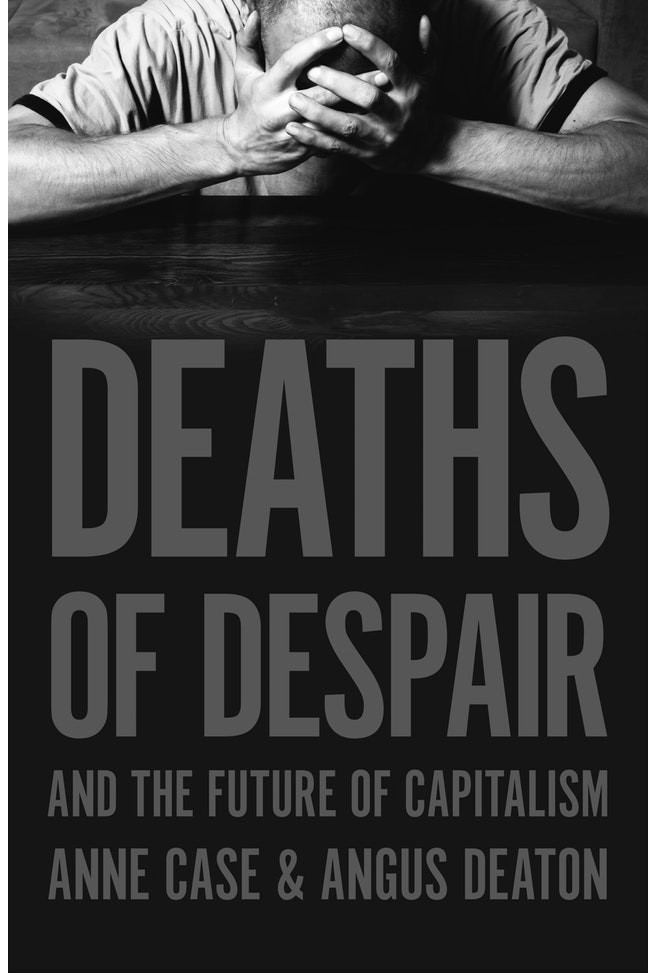 A new word, “opioid” has entered the American vocabulary, a catch-all for addictive pain killers like Oxy-Contin that often lead sufferers to heroin, crime and a downward spiral.
While African-Americans were targeted with the crack cocaine epidemic, it is white people with a high school education who are dying today.
A new word, “opioid” has entered the American vocabulary, a catch-all for addictive pain killers like Oxy-Contin that often lead sufferers to heroin, crime and a downward spiral.
While African-Americans were targeted with the crack cocaine epidemic, it is white people with a high school education who are dying today.
|
| Radical tractor builders - The Long Deep Grudge |
|
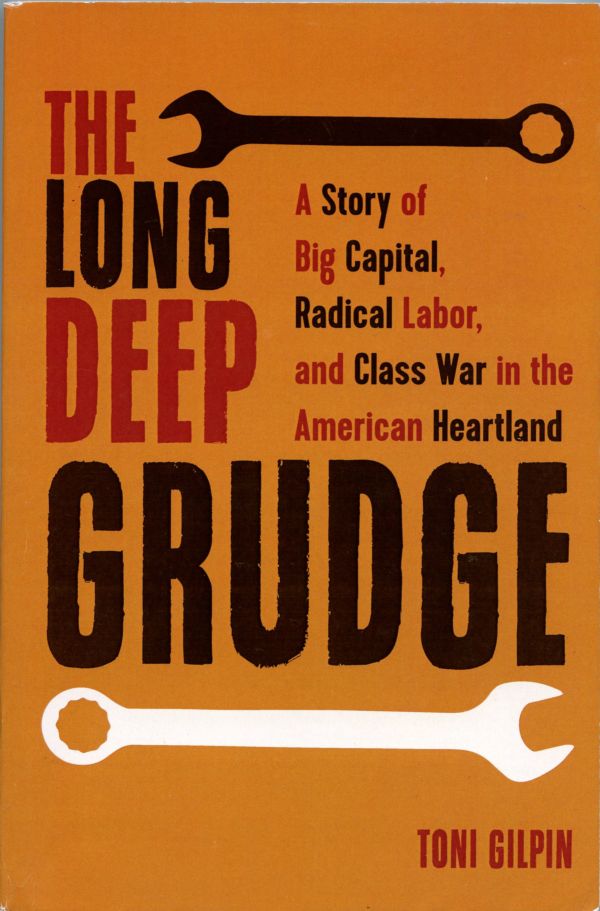 In Peoria, Rock Island, Aurora and Decatur, the economies depend on Caterpillar and John Deere. Working families’ lives are transformed positively or negatively, depending upon the United Auto Workers’ contract.
Few remember that the UAW’s heavy equipment roots were nurtured by a 1930s radical union, the United Farm Equipment Workers of America (FE).
In Peoria, Rock Island, Aurora and Decatur, the economies depend on Caterpillar and John Deere. Working families’ lives are transformed positively or negatively, depending upon the United Auto Workers’ contract.
Few remember that the UAW’s heavy equipment roots were nurtured by a 1930s radical union, the United Farm Equipment Workers of America (FE).
|
| Fake science - The Triumph of Doubt |
|
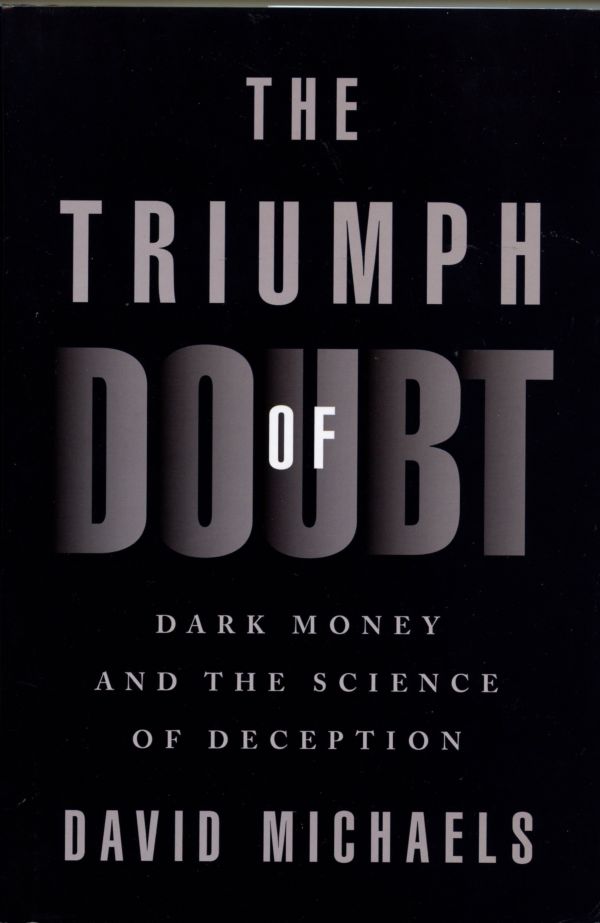 One day alcohol is bad for you, the next, a glass of red wine is healthy. We are told too much sugar is bad, but an outcry results with any challenge to our sweet drinks.
Who to believe?
Believe if there’s a profit to be made it will be made, whether it’s good for you or not.
One day alcohol is bad for you, the next, a glass of red wine is healthy. We are told too much sugar is bad, but an outcry results with any challenge to our sweet drinks.
Who to believe?
Believe if there’s a profit to be made it will be made, whether it’s good for you or not.
|
| We're still here |
|
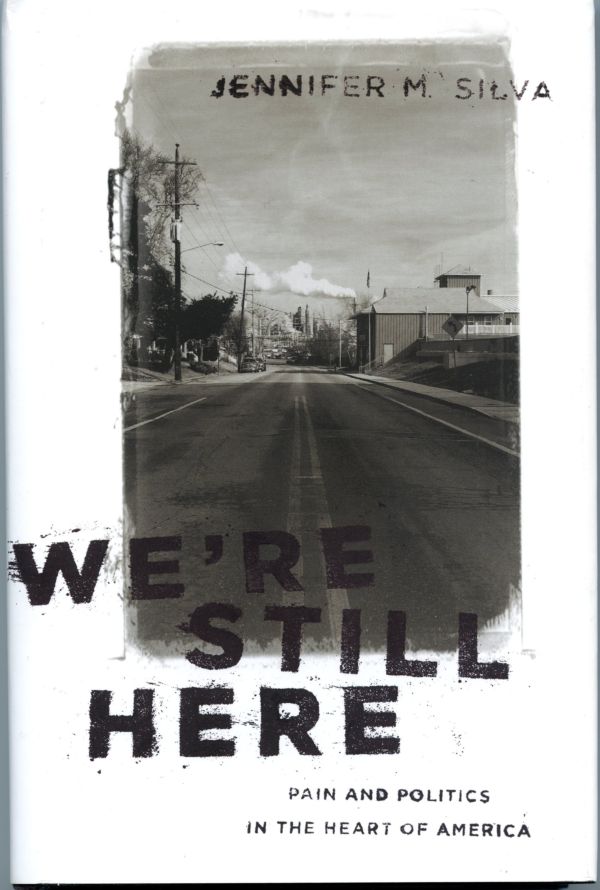 What happens to people left behind when the economy disappears? How do they see themselves and their struggling lives?
We’re Still Here is a telling chronicle of a once-thriving Eastern Pennsylvania coal town, where dangerous underground mining formerly ensured economic vitality and decent, unionized jobs.
What happens to people left behind when the economy disappears? How do they see themselves and their struggling lives?
We’re Still Here is a telling chronicle of a once-thriving Eastern Pennsylvania coal town, where dangerous underground mining formerly ensured economic vitality and decent, unionized jobs.
|
| Challenges of race - organizing the Chicago stockyards 1919 |
|
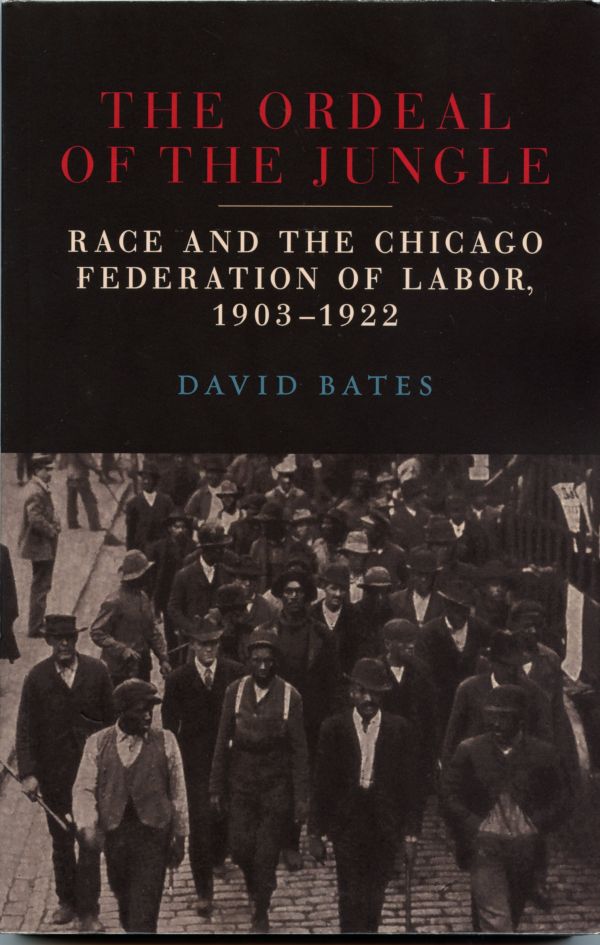 The Ordeal of The Jungle: Race & The Chicago Federation of Labor, 1903-1922
By David Bates, Southern Illinois University Press
There are so many ways to define us—gender, economic status, race, sexual orientation, age...
American labor is full of valiant moments, when workers came together in common cause, regardless of their background.
The Ordeal of The Jungle: Race & The Chicago Federation of Labor, 1903-1922
By David Bates, Southern Illinois University Press
There are so many ways to define us—gender, economic status, race, sexual orientation, age...
American labor is full of valiant moments, when workers came together in common cause, regardless of their background.
|
| Edge of Anarchy: New Pullman strike history outstanding read |
|
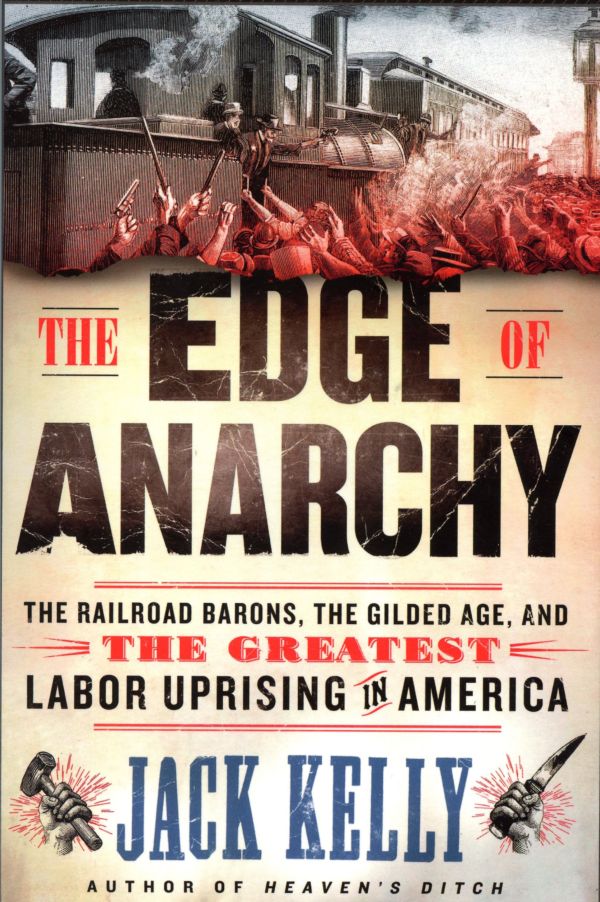 In 1894, the U.S. came to a standstill as millionaire George Pullman (1831-1897) faced off against railroad workers, led by Eugene Debs (1855-1926) and the American Railway Union. Commerce halted, blood was spilt and streets battles raged. The Edge of Anarchy brings this epic struggle to vivid life in a readable, accessible fashion.
In 1894, the U.S. came to a standstill as millionaire George Pullman (1831-1897) faced off against railroad workers, led by Eugene Debs (1855-1926) and the American Railway Union. Commerce halted, blood was spilt and streets battles raged. The Edge of Anarchy brings this epic struggle to vivid life in a readable, accessible fashion.
|
| "What if?" new Harold Washington biography charts unfinished possibilities |
|
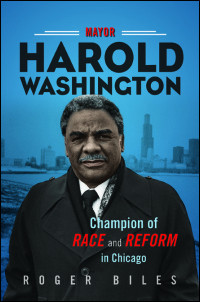 Political chaos reigns in Chicago with Mayor Rahm Emmanuel’s announcement not to seek reelection. Race and class fissures are again apparent as potential candidates vie.
Roger Biles’ new biography of Mayor Harold Washington (1922-1987), whether intentional or not, raises the question, what if Chicago politics was on a very different course.
Political chaos reigns in Chicago with Mayor Rahm Emmanuel’s announcement not to seek reelection. Race and class fissures are again apparent as potential candidates vie.
Roger Biles’ new biography of Mayor Harold Washington (1922-1987), whether intentional or not, raises the question, what if Chicago politics was on a very different course.
|
| A Labor Film for the 21st Century? |
|
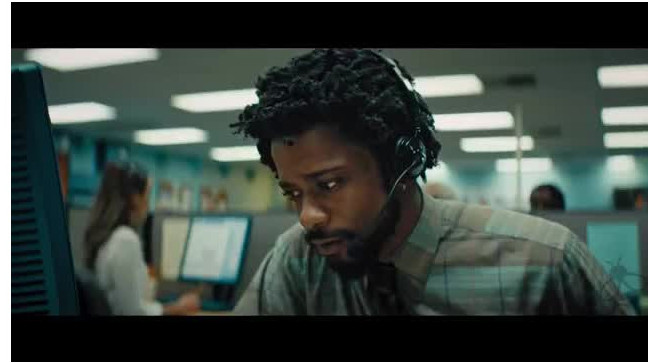 A labor film for the 21st century
Does the 21st century finally have the labor movie it deserves?
Look no further than Boots Riley’s Sorry to Bother You, an outlandish yet telling mix of old-fashioned workplace confrontation, race and gender relations mixed in an outlandish stew of hyper-capitalism.
A labor film for the 21st century
Does the 21st century finally have the labor movie it deserves?
Look no further than Boots Riley’s Sorry to Bother You, an outlandish yet telling mix of old-fashioned workplace confrontation, race and gender relations mixed in an outlandish stew of hyper-capitalism.
|
| Anger: Sung & Shouted from 1913 to the Nobel Prize |
|
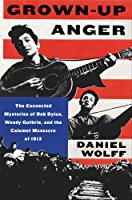 Anger is a powerful emotion and the connecting link in Grown-up Anger: The Connected Mysteries of Bob Dylan, Woody Guthrie and the Calumet Massacre of 1913, by Daniel Wolff.
The three might seem an unlikely combination in a book that ranges through biography, musical criticism and labor history.
Anger is a powerful emotion and the connecting link in Grown-up Anger: The Connected Mysteries of Bob Dylan, Woody Guthrie and the Calumet Massacre of 1913, by Daniel Wolff.
The three might seem an unlikely combination in a book that ranges through biography, musical criticism and labor history.
|
| Family tale weaves union activism across generations |
|
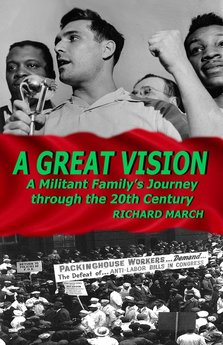 A Great Vision: A Militant Family’s Journey through the 20th Century
Where does the inspiration come to devote one’s life and energy to improving the human condition? What makes a person willing to sacrifice their own safety and well-being to organize a union.
A Great Vision: A Militant Family’s Journey through the 20th Century
Where does the inspiration come to devote one’s life and energy to improving the human condition? What makes a person willing to sacrifice their own safety and well-being to organize a union.
|
| New novel explores Illinois' 1930s coal field wars |
|
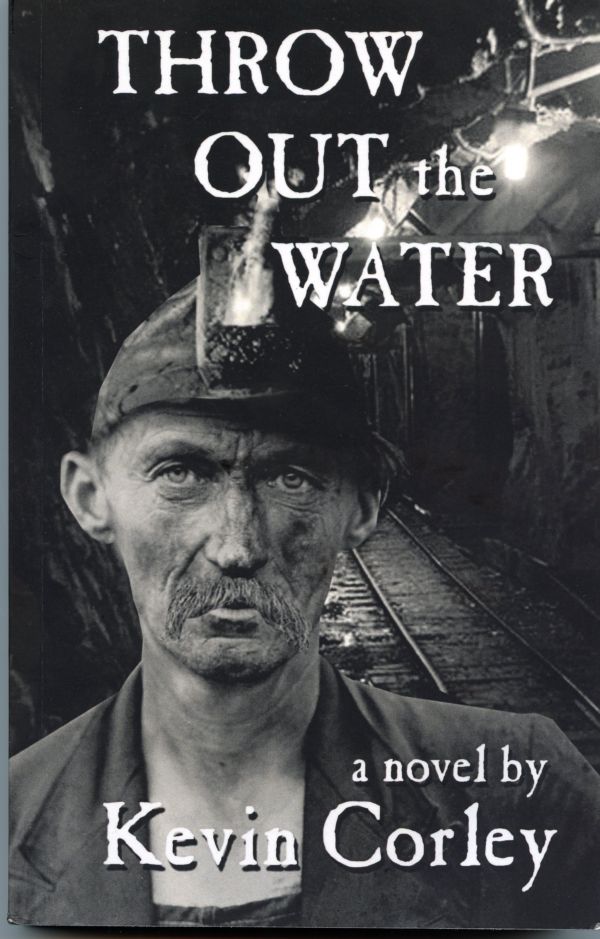 A novel about a union battle? “Yawn” might be the response, unless that novel includes gun battles, dynamite and sadistic sex.
Throw Out the Water tells a family tale, as Illinois miners fight a unique and bloody coal fields battle.
Now most coal field stories feature a greedy company, collapsing mines and exploited but militant miners.
A novel about a union battle? “Yawn” might be the response, unless that novel includes gun battles, dynamite and sadistic sex.
Throw Out the Water tells a family tale, as Illinois miners fight a unique and bloody coal fields battle.
Now most coal field stories feature a greedy company, collapsing mines and exploited but militant miners.
|
| "Dirt Work" captures laboring life |
|
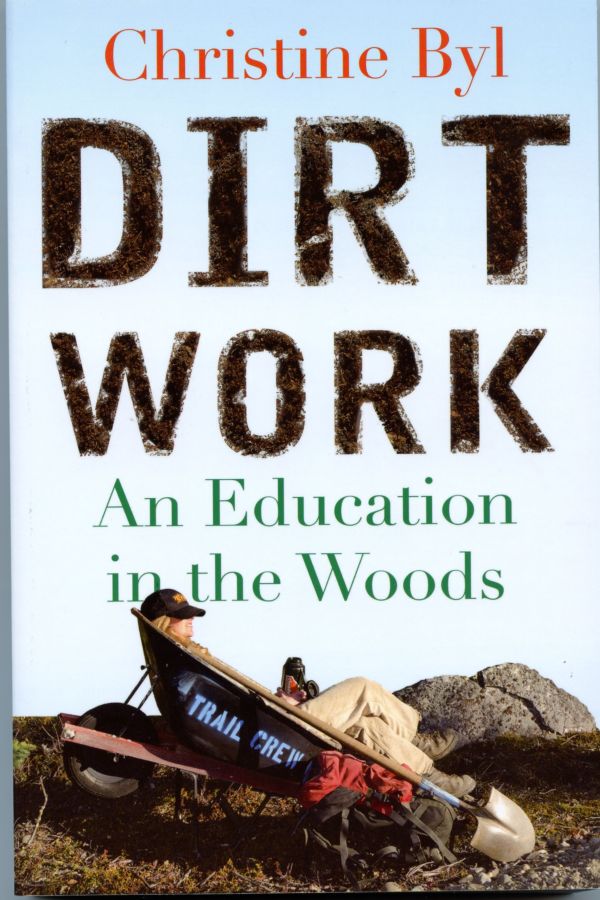 reviewed by Mike Matejka
Leaving their air-conditioned office, what goes through someone’s mind when they pass a construction site on a sticky-humid August day?
Do the motorists give a thought to the men and women in the bright orange and lime green Ts behind the asphalt paver.
reviewed by Mike Matejka
Leaving their air-conditioned office, what goes through someone’s mind when they pass a construction site on a sticky-humid August day?
Do the motorists give a thought to the men and women in the bright orange and lime green Ts behind the asphalt paver.
|
| What our grandparents ate |
|
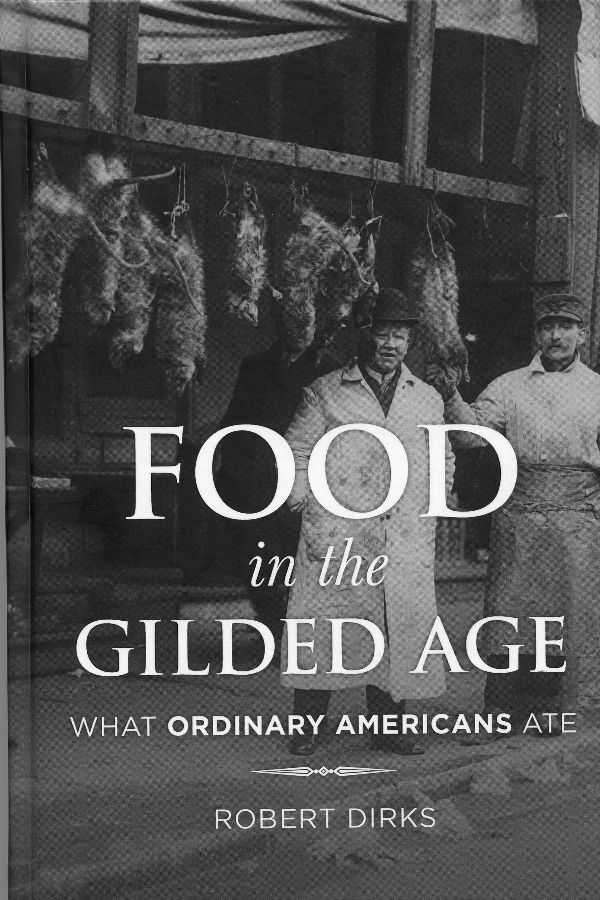 Food in the Gilded Age: What Ordinary Americans Ate, by Robert Dirks
If we go back 100-plus years ago, what did our grandparents and great-grandparents eat, before the days of golden arches, microwaves and frozen pizza?
With a scrupulous look at early diet research, retired Illinois State University anthropologist Rob Dirks reconstructed the food ways of America’s workers.
Food in the Gilded Age: What Ordinary Americans Ate, by Robert Dirks
If we go back 100-plus years ago, what did our grandparents and great-grandparents eat, before the days of golden arches, microwaves and frozen pizza?
With a scrupulous look at early diet research, retired Illinois State University anthropologist Rob Dirks reconstructed the food ways of America’s workers.
|
| Like a good mystery? Meet Lenny Moss |
|
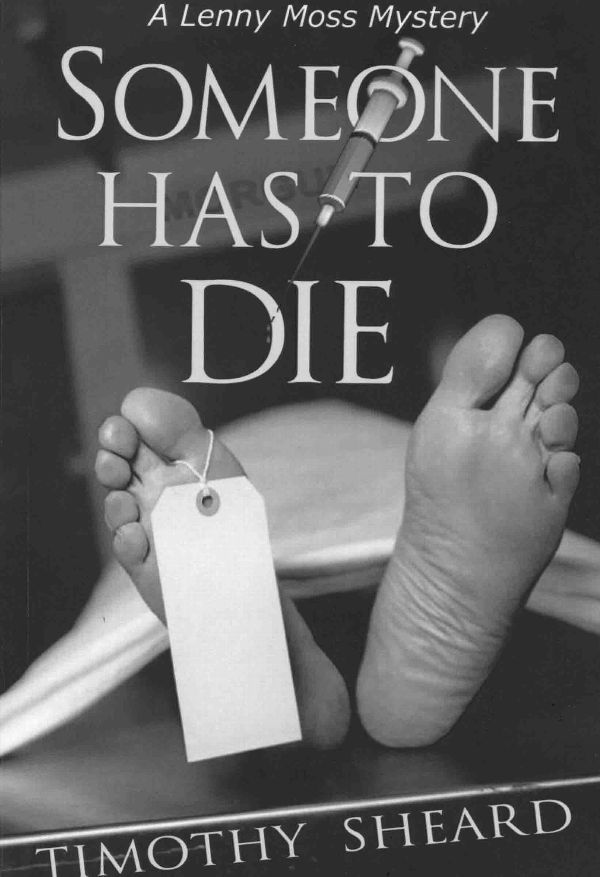 What’s your image of a detective? Sherlock Holmes in his deerslayer hat, magnifying glass at the ready? Humphrey Bogart as the tough guy, a cigarette hanging out of his mouth? A femme fatale in a revealing red evening gown, slowly and seductively pulling information from some unwitting male?
Meet Lenny Moss. He mops bathroom floors and hospital hallways.
What’s your image of a detective? Sherlock Holmes in his deerslayer hat, magnifying glass at the ready? Humphrey Bogart as the tough guy, a cigarette hanging out of his mouth? A femme fatale in a revealing red evening gown, slowly and seductively pulling information from some unwitting male?
Meet Lenny Moss. He mops bathroom floors and hospital hallways.
|
| Civil Rights anthem live again in "Oh Freedom" |
|
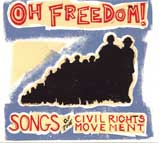 Every movement - labor, women, civil rights - has its music. No American political effort used music more effectively and burrowed itself into the national song track like the 1960s Civil Rights fight.
Drawing on gospel, jazz, blues and spirituals, a rich musical texture overlaid the effort. We Shall Overcome became an international anthem, adapted to many causes and efforts.
Every movement - labor, women, civil rights - has its music. No American political effort used music more effectively and burrowed itself into the national song track like the 1960s Civil Rights fight.
Drawing on gospel, jazz, blues and spirituals, a rich musical texture overlaid the effort. We Shall Overcome became an international anthem, adapted to many causes and efforts.
|
| Joe Hill has never died, 1915-2015 |
|
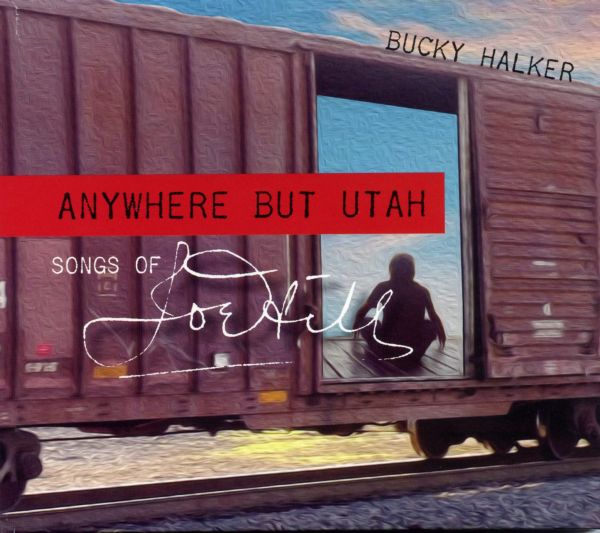 “Joe Hill has never died” -- if you are of a certain generation, you remember Woodstock and Joan Baez singing an “organizing song” about some guy named Joe Hill.
Joe Hill was real -- a Swedish immigrant who became a vocal union organizer, executed by Utah in 1915, charged with a murder which many claim was trumped up.
“Joe Hill has never died” -- if you are of a certain generation, you remember Woodstock and Joan Baez singing an “organizing song” about some guy named Joe Hill.
Joe Hill was real -- a Swedish immigrant who became a vocal union organizer, executed by Utah in 1915, charged with a murder which many claim was trumped up.
|
| Old Wobbly songs zap with style |
|
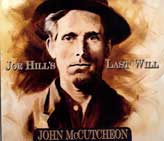 Joe Hill’s Last Will by John McCuthcheon, Appalsongs
On November 19, 1915, a Swedish immigrant, Joel Emmanuel Hagglund, was executed by a firing squad in Salt Lake City, Utah, charged with murdering a grocer.
That event might be long forgotten, except that immigrant was better known for his anglicized name, “Joe Hill.
Joe Hill’s Last Will by John McCuthcheon, Appalsongs
On November 19, 1915, a Swedish immigrant, Joel Emmanuel Hagglund, was executed by a firing squad in Salt Lake City, Utah, charged with murdering a grocer.
That event might be long forgotten, except that immigrant was better known for his anglicized name, “Joe Hill.
|
| Ordinary "extraordinary" workers shine in new book |
|
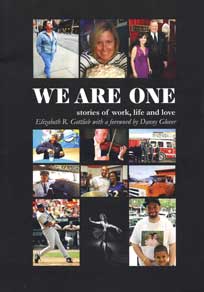 Are we our jobs, or are we more? The eight or more hours we spent working daily often defines \ our life. Even when retired, we refer back to the job we once had.
Yet who ever looks beneath the surface to see a person, not just an occupation, an individual with dreams and aspirations.
Are we our jobs, or are we more? The eight or more hours we spent working daily often defines \ our life. Even when retired, we refer back to the job we once had.
Yet who ever looks beneath the surface to see a person, not just an occupation, an individual with dreams and aspirations.
|
| Children's books, local music tell workers' stories |
|
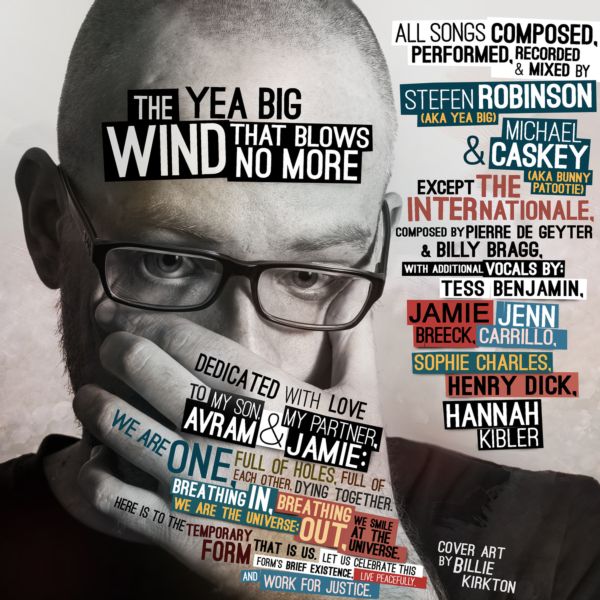 Here’s two new children’s books with a workers’ rights theme and two new musical compilations by local artists.
Hardball Press has two just released titles for children, for more information, go to www.hardballpress.com.
Joelito’s Big Decision by Ann Berlak, illustrated by Daniel Camacho, features a young man making a hard choice.
Here’s two new children’s books with a workers’ rights theme and two new musical compilations by local artists.
Hardball Press has two just released titles for children, for more information, go to www.hardballpress.com.
Joelito’s Big Decision by Ann Berlak, illustrated by Daniel Camacho, features a young man making a hard choice.
|
| New CD rocks with spirit of Mother Jones |
|
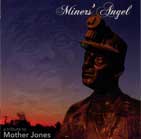 No one in American labor history has won the mythic status of Mary “Mother” Jones (1837-1930).
This Irish immigrant, who lost her family to disease and her business to the Great Chicago Fire, became the nation’s roving rabble-rouser in the final third of her life.
Traveling from picket line to coal mine to jail cells, this spirited figure rallied many a strike.
No one in American labor history has won the mythic status of Mary “Mother” Jones (1837-1930).
This Irish immigrant, who lost her family to disease and her business to the Great Chicago Fire, became the nation’s roving rabble-rouser in the final third of her life.
Traveling from picket line to coal mine to jail cells, this spirited figure rallied many a strike.
|
| Down on the Farm - Land of Milk & Uncle Honey |
|
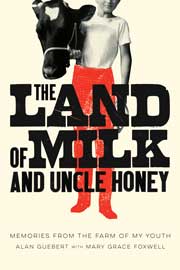 Though we all eat multiple times a day, fewer Americans have direct connections to the land. The rural population is smaller and bigger machinery and consolidations have left rural communities vacant.
Remembering agriculture 50 years ago is the theme of Alan Guebert’s Land of Milk & Uncle Honey.
Though we all eat multiple times a day, fewer Americans have direct connections to the land. The rural population is smaller and bigger machinery and consolidations have left rural communities vacant.
Remembering agriculture 50 years ago is the theme of Alan Guebert’s Land of Milk & Uncle Honey.
|
| Rednecks fight for union rights |
|
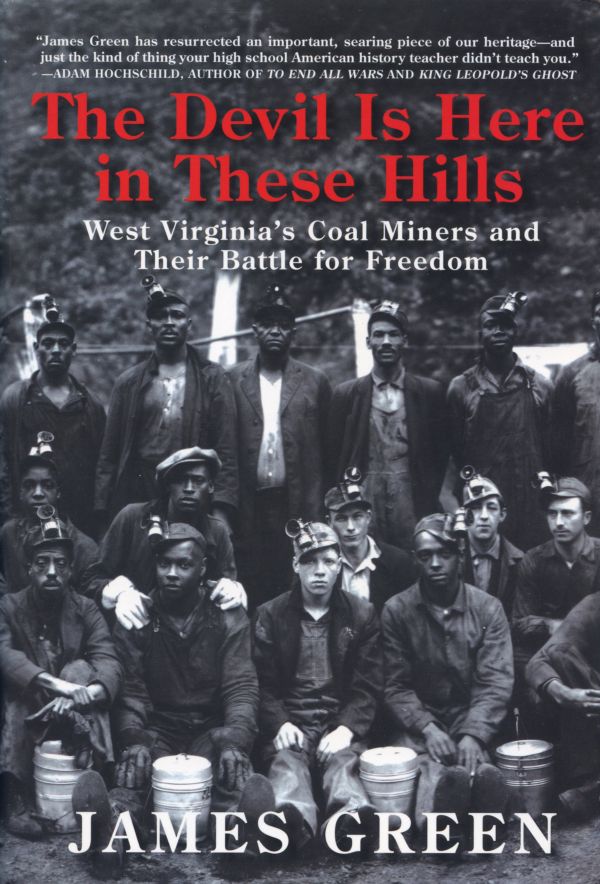 The Devil Is Here In These Hills: West Virginia Coal Miners and their Battle for Freedom, by James Green, Atlantic Monthly Press, ISBN 978-0-8021-2331-2 $28.
The Devil Is Here In These Hills: West Virginia Coal Miners and their Battle for Freedom, by James Green, Atlantic Monthly Press, ISBN 978-0-8021-2331-2 $28.
|
| Bloomington activist blazed trails |
|
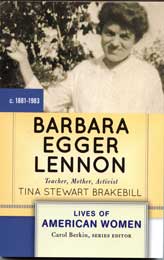 Famous activist and union members get remembered, but what about the everyday people who strive to make life better in their own community?
Tina Stewart Brakebill, an ISU history instructor, has done that for Barbara (Barbe) Lennon (1881-1983), a Bloomington teacher, activist and mother who strove to represent her profession and improve local conditions.
Famous activist and union members get remembered, but what about the everyday people who strive to make life better in their own community?
Tina Stewart Brakebill, an ISU history instructor, has done that for Barbara (Barbe) Lennon (1881-1983), a Bloomington teacher, activist and mother who strove to represent her profession and improve local conditions.
|
| What did you learn at work today? |
|
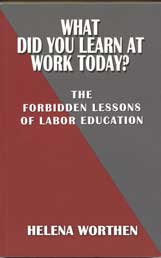 What did you learn at work today? by Helena Worthen www.hardballpress.com
We all learn something new. We learn from school, family and friends, and much of what we learn is on the job. That can not only mean job skills, but also learning human personalities, workplace issues and basic job justice.
What did you learn at work today? by Helena Worthen www.hardballpress.com
We all learn something new. We learn from school, family and friends, and much of what we learn is on the job. That can not only mean job skills, but also learning human personalities, workplace issues and basic job justice.
|
| Building Trades: Mutual support or go it alone? |
|
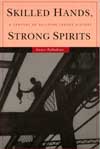 Skilled Hands, Strong Spirits: A century of Building Trades History
by Grace Palladino
Cornell University Press
ISBN 978-0-8014-7414-9
Reviewed by Mike Matejka
Almost every construction trades worker has been at a union meeting or on the job where that infamous word “jurisdictional dispute” has arisen.
Skilled Hands, Strong Spirits: A century of Building Trades History
by Grace Palladino
Cornell University Press
ISBN 978-0-8014-7414-9
Reviewed by Mike Matejka
Almost every construction trades worker has been at a union meeting or on the job where that infamous word “jurisdictional dispute” has arisen.
|
| The price of inequality |
|
The Price of Inequality: How Today’s Divided Society Endangers Our Future
By Joseph Stiglitz
Norton & Company, 2012
ISBN 978-0-393-08869-4
Reviewed by Mike Matejka
Economics, the study of how we earn and spend our hard-earned pay, can be dry stuff, often lost in obscure charts and mathematical models.
|
| Money well Spent? - The Obama Stimulus |
|
Money Well Spent?
The Truth Behind the Trillion-Dollar Stimulus, the Biggest Economic Recovery Plan in History
By Michael Grabell
Public Affairs $27.99
ISBN: 9781610390095
Reviewed by Mike Matejka
The stimulus is often slammed in the news media as a failure. The $825 billion stimulus package is reviled by conservatives as a deficit lead weight.
|
| Food producers shut out from the bounty they create |
|
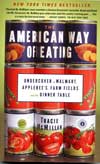 The American Way of Eating by Tracie McMillan (Simon & Schuster)
Behind the Kitchen Door by Saru Jayaraman (Cornell University Press)
The Chicken Trail: Following Workers, Migrants and Corporations Across the Americas by Kathleen C. Schwartzman(Cornell University Press)
Reviewed by Mike Matejka
We have become a food conscious and an eating out nation.
The American Way of Eating by Tracie McMillan (Simon & Schuster)
Behind the Kitchen Door by Saru Jayaraman (Cornell University Press)
The Chicken Trail: Following Workers, Migrants and Corporations Across the Americas by Kathleen C. Schwartzman(Cornell University Press)
Reviewed by Mike Matejka
We have become a food conscious and an eating out nation.
|
| Bucky Halker channels Woody Guthrie |
|
The Ghost of Woody Guthrie
CD by Bucky Halker & Andy Dee
www.buckyhalker.com
Reviewed by Mike Matejka
Woodrow Wilson Guthrie (1912-1967) is an American musical genius few people know, outside of leftists and folkies, but we sing his songs.
|
| Rail Labor led the way for 1930s reforms |
|
American Railroad Labor & the Genesis of the New Deal, 1919 - 1935
by Jon R. Huibregtse
University Press of Florida
ISBN 978-0-8130-3465-2
reviewed by Michael G. Matejka
In the telling of labor’s story, the 1930s is the seminal, triumphant decade. With a sympathetic President, Franklin D.
|
| How to read e-mail and the internet |
|
The internet and e-mail can be a wonderful thing, but they also bring some strange things inside our homes.
Suddenly you are a multi-millionaire, if only you will give a Siberian or a Nigerian your bank account; a friend is stranded in London (Madrid, Paris, take your pick) with their passport and wallet stolen, send money now.
|
Page Last Updated: Mar 21, 2022 (12:08:43)
|

